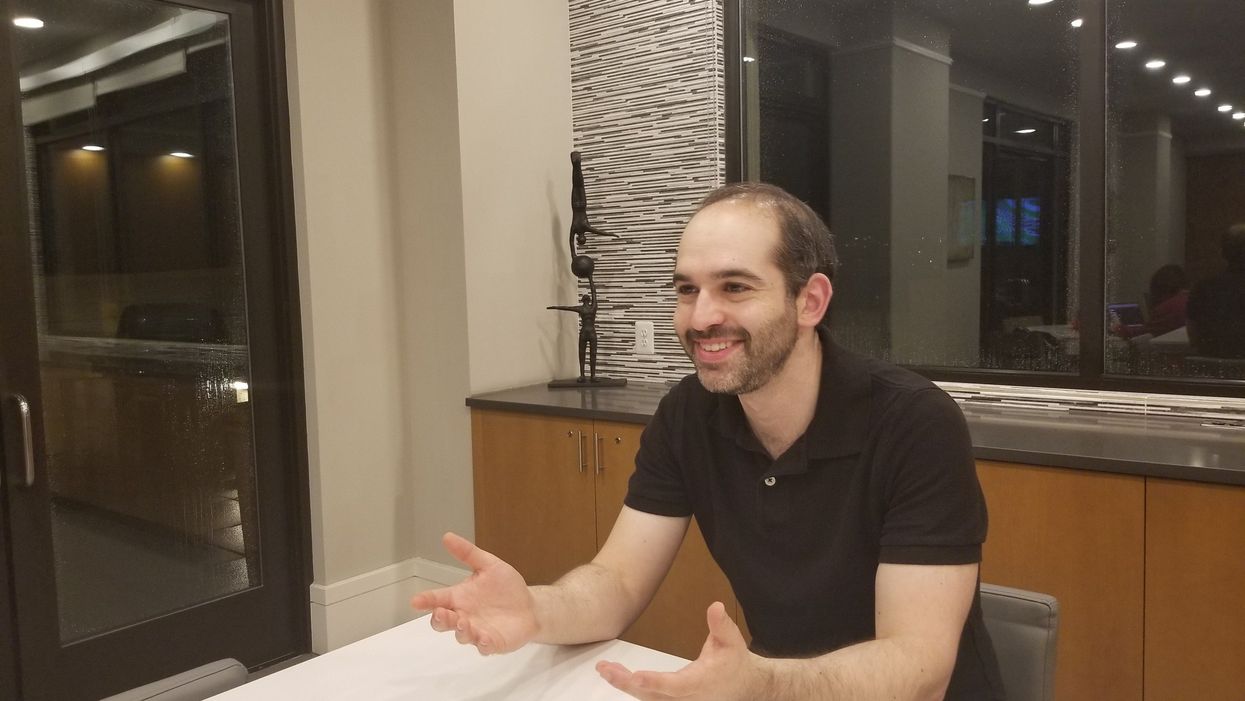James D. Coan is co-director of the Media Initiative for Better Angels, a national organization dedicated to reducing political polarization by convening liberals and conservatives in a variety of settings and preaching the virtues of civility and cross-party alliances. A D.C.-area native, he started his career at a Rice University think tank before spending seven years as a strategy consultant, mainly for private-sector energy clients. Starting around the 2016 election he has established himself as one of the country's few depolarization strategists. His answers have been lightly edited for clarity and length.
What's the tweet-length description of your organization?
Better Angels is building a house united to save our republic. We will overcome polarization. We help Americans see what we share and what can keep America together, both in small workshops and through mass media.
Describe your very first civic engagement.
In fifth grade, I wanted soccer goals installed at my elementary school. I wrote to the parks board. Magically, the board listened, and two goals were installed. I doubt anything will be that easy ever again, but perhaps it gives me hope to tackle more difficult topics.
What was your biggest professional triumph?
I should preface this answer by noting two things: I still have a separate full-time job as a strategy consultant. And much of my work in depolarization is behind-the-scenes, planning out what can be successful. What I'm most proud of as a depolarization volunteer: substantial progress taking academic research from various fields to formulate a strategy that can ultimately impact large numbers of Americans. First, I feel I've focused the problem on what researchers like political scientist Shanto Iyengar call "affective [emotional] polarization." What matters most is our intense animosity for the other side, and I've identified a few of the most troubling emotions. Then I feel like I've developed solutions, often influenced by social psychology. Moral psychologist Jonathan Haidt shows emotions and intuitions dominate when it comes to reasoning and politics, and one must appeal to emotions to make change. Haidt's most famous article is "The Emotional Dog and Its Rational Tail." It's ironic; the most intellectual people in this space say it's best to keep it simple by speaking to emotions and highlighting commonalities. We're now finding the right messengers who can amplify messages to reach millions.
And your most disappointing setback?
I initially got my start in this space by sharing stories of friends and those in close relationships across political divides. I called it Red Blue Together. I successfully collected these stories. Starting the project helped introduce me to many people in the field. However, I think I'm a much better strategist than an Instagram influencer, so my follower count always stayed low.
How does your identity influence the way you go about your work?
I'm an American, and I feel my country is tearing itself apart. I have to do something to keep my country together. Reducing polarization has become part of my identity, and it's a major part of my purpose in life.
What's the best advice you've ever been given?
A former boss said those who are lucky enough to have any choice can still often only choose one of the following: money, fame or influence. I guess by doing this profile maybe it appears I'm choosing fame. However, I try to focus on influence as much as possible.
Create a new flavor for Ben & Jerry's.
"E Peppermint Unum": Upon opening up the pint, there is a little American flag made out of tiny candy cane pieces.
What's your favorite political movie or TV show?
I think old episodes of "The Simpsons" have enough politics for me. I read a lot of news, but I don't believe I go out of my way to use politics as entertainment.
What's the last thing you do on your phone at night?
Some combination of personal email, FiveThirtyEight.com, Facebook and The Washington Post
What is your deepest, darkest secret?
I don't really like peppermint, so I might not like my Ben and Jerry's flavor.




















